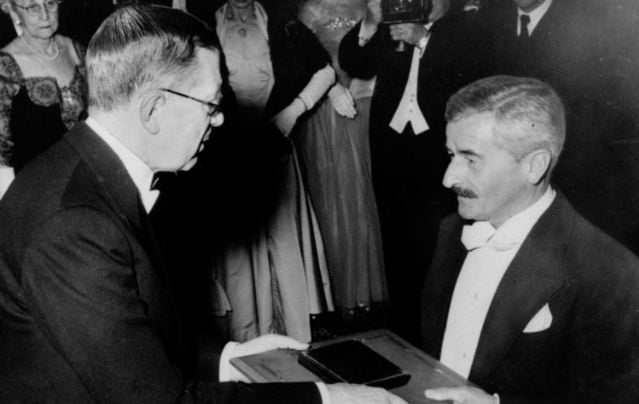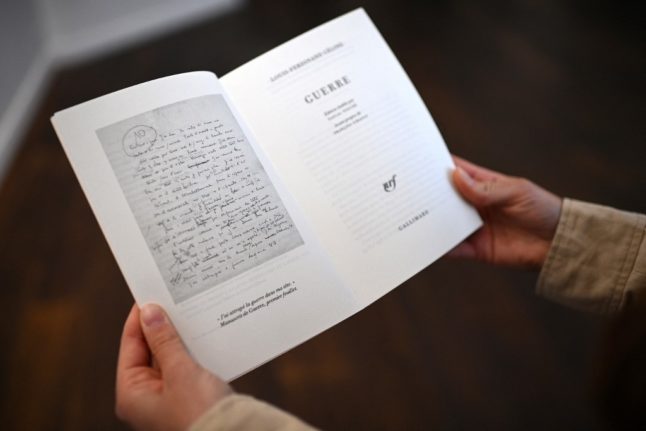LITERATURE
Two for one: Swedish Academy member sees Nobel crisis silver lining
The head of Swedish Academy's Nobel Committee has found a possible silver lining for the postponement of the prize — the prospect of two literature laureates rather than one taking to the stage.
Published: 4 May 2018 17:22 CEST

The US novelist William Faulkner receives the 1949 Nobel Prize for Literature...in 1950. Photo: AP
Per Wästberg, a former editor of the Dagens Nyheter newspaper, said he still looked back fondly to the year the prize was delayed from 1949 to 1950 – bringing the notoriously boozy American novelist William Faulkner to Stockholm together with the cerebral British philosopher Bertrand Russell.
Wästberg told The Local it had been “a most unlikely pair whom I remember clearly from my school days, Russell in splendid witty form, Faulkner basically drunk”.
Faulkner was awarded the 1949 prize for “his powerful and artistically unique contribution to the modern American novel”, while Russell received the 1950 prize “in recognition of his varied and significant writings in which he champions humanitarian ideals and freedom of thought”.
The Nobel Foundation has a film of the 1949 ceremony, which you can watch here.
You can listen here to Faulkner's speech and judge for yourself:
And here's Bertrand Russell's:
Wästberg, a poet and novelist, runs the four-person committee that whittles down nominees before the Academy votes on the winner.
He fully supports the decision to postpone the prize to give the Swedish Academy time to regroup after six members left over the institution's response to allegations of sexual assault against Jean-Claude Arnault, the husband of one of its members, including claims of biased payouts and leaks of Nobel winners.
“I am myself, as chairman of the Nobel Committee, very much behind it,” Wästberg said.
The work of the committee would continue regardless, he added.
“The Committee will be working as usual, we have in early April agreed – in the entire Academy – to a list of 20 names on the observation or expectancy list which I presented. From them we will select five names for the short list, to be approved by the rest of the Academy in late May.”
Wästberg said the members would study the works on the shortlist “intensely” over the summer.
“I am a voracious reader since childhood, I am generally consuming one good book a day,” he said. “So nothing is changed in our work except the announcement of a laureate.”
Url copied to clipboard!


 Please whitelist us to continue reading.
Please whitelist us to continue reading.
Member comments